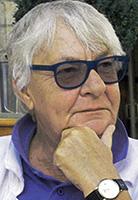Risks, roots and responses Nordic conference on research on violent extremism
The aim of the conference was to present research and concrete initiatives and interventions that are currently going on in the Nordic countries as well as in other parts of the world that are of relevance for the Nordic countries and Europe in general.
Panel programme
April 24-26, 2017
Research on extremism, radicalization, racism, terrorism and similar topics is expanding rapidly in Europe and across the world. This research addresses a wide range of issues such as how to map and counteract extremist groups and movements and their activities in various countries. Other lines of research operate within a preventive agenda through interventions of various kinds that seek to increase social cohesion, prevent marginalization and build resilience in communities. An overarching interest is to understand the contemporary social and political conditions that contribute to the emergence and expansion of such movements.
The Segerstedt Institute at the University of Gothenburg was happy to invite participants to a Nordic conference for research on violent extremism and the prevention of such extremism. The aim of the conference was to present research and concrete initiatives and interventions that are currently going on in the Nordic countries as well as in other parts of the world that are of relevance for the Nordic countries and Europe in general.
April 24, 13:00-14:00
ABBY PETERSON Professor emerita
Department of Sociology and Work Science, University of Gothenburg
Neo-Sectarianism — Lessons from the Left, Resonance on the Right
I will discuss basic underlying mechanisms of radicalization, some of which are common for left-wing militant activism and militant activism on the extreme right. I emphasize that the content of their political messages are worlds apart, as are, most often, the targets for their strategic actions: left-wing activists preferring (non)violence actions directed towards self and/or property, and to a lesser degree, other directed; extreme right preferring violent actions towards others and/or property. Nonetheless, there are commonalities in the processes of radicalization. I will address the following three mechanism
The emotional power of ritual confrontations, whereby a mentality of embattlement is fostered, that creates a vision of the world as divided between a ‘we’ and ‘them’. Radicalization and group fusion follow the everyday emotional and physical experiences of conflict and turmoil on the part of activists in their action spaces.
Secrecy is an underlying bonding principle, which both confirms and reinforces the basic solidarity upon which the neo-sect rests.
Radicalization is reinforced through the construction of moral communities, that is, the sub-political articulation of the activists’ politics in everyday life. The militant ‘practices what she/he teaches’.
April 25, 09:00-10:00
SCOTT ATRAN Professor of Anthropology
Centre National de la Recherches Scientifique, University of Oxford, University of Michigan, ARTIS International
Devoted Actors and the Spiritual Dimension of Human Conflict: Research on the ISIS frontline and with Al Qaeda Affiliates
Uncompromising wars, revolution, rights movements, and today’s globalterrorism are in part driven by Devoted Actors who adhere to sacred ortranscendent values that generate actions independently, or all out ofproportion, from rationally expected outcomes, calculated costs andconsequences, or likely risks and rewards. Field-based observation, surveys and experimental studies in real-world political conflictsshow ways in which Devoted Actors, who are unconditionally committedto sacred causes, and whose personal identities are fused within aunique collective identity, willingly make costly sacrifices includingfighting and dying, thus enabling low-power groups to endure and oftenprevail against materially much stronger foes.
Explaining how devoteda ctors come to sacrifice for cause and comrade not only is ascientific goal, but also a practical imperative to prevent andresolve seemingly intractable intergroup disputes that can spiral outof control in a rapidly interconnecting world of collapsing andconflicting cultural traditions in search of salvation. Fieldwork andexperiments in Europe, NorthAfrica and on the frontlines in the battlewith the Islamic State in Iraq help to make the case.
April 25, 13:00-14:00
MICHAEL KIMMEL, Professor of Sociology
Stony Brook University, New York
Angry White Men: How Young Men get into Extremist movements — and how to help them get out
How does a gender perspective help us understand how young men (and many boys) become involved in extremist social movements?
I argue that a gender analysis helps us understand how they understand their situation, how they understand the ”other” and how they recruit young men. And I argue that the experience of these young men is far less about political ideology and far more about comradeship, community and meaning. To help them get out, I discuss four organizations - EXIT Sweden, EXIT Germany, Life After Hate (US) and Quilliam (London).
April 26, 09:00-10:00
DONATELLA DELLA PORTA Professor of Sociology
University of Florence
Radicalization and political violence. A processual approach
Processes of radicalization and de-radicalization of political repertoires — as indicated by the use of violence — involve relevant relational, cognitive and affective causal mechanisms, requiring a dynamic analytical approach. While the social science literature has generally considered radicalization as an individual process, this talk, rooted in social movement studies, will address it mainly as collective processes, linking micro-, meso- and macro levels of analysis.
The main tool for determining the link between individual motivations, at the micro level, and environmental conditions, at the macro level, is the analysis of an individual’s perceptions of their identity and environmental conditions, as well as of the small-group dynamics that move their radicalization forward. A systematic analysis is all the more
relevant in a moment in which the different forms of radicalization seems to feed each other within collective dynamics of conflict escalation.
April 26, 13:00-14:00
TORE BJøRGO Professor at Oslo University, Director for Center for Research on Extremism
Exit and rehabilitation of former extremists: how projects and interventions differ
During the last decade, we have seen a proliferation of programmes and projects to facilitate “deradicalisation”, “Exit” or “rehabilitation” of (former) extremists. This approach has become a core element in policies to counter violent extremism in many countries. However, these interventions vary enormously along a number of dimensions. This presentation will try to describe and discuss this variation in a systematic way in order to learn from previous achievements and mistakes, and understand better the pros and cons of different models. These issues will be addressed:
- What is the main goal of the exit interventions – “deradicalisation” or “disengagement”?
- Is the exit intervention a program, a project or a standard praxis within established agencies or preventive activities?
- Who are the target groups for the exit intervention?
- Who implements the exit intervention?
- Where is the exit intervention implemented?
- What can the exit intervention offer the clients?
- Is the exit intervention based on contract or trust?
- Who fills the roles as mentors/coaches?
- How do we measure success or failure?




